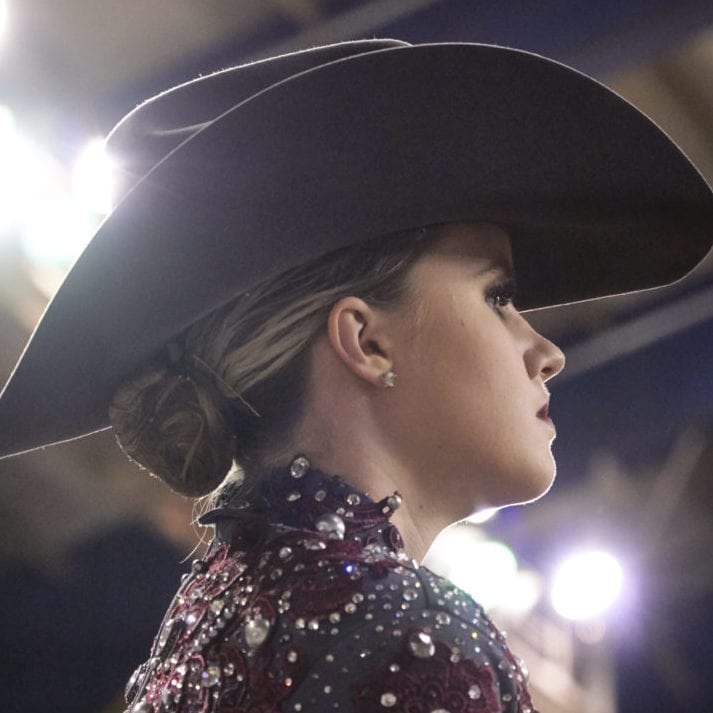Deciding which path to take after high school is a challenging task. Picking the place you will spend multiple years at can be stressful. The transition to college can be hard, so choosing the right one for you is especially important.
Whether you decide to go to college and pursue a degree in equine studies, ride for an equestrian team or be on a horse judging team, there are many career options out there to choose from.
We talked with professionals Mary Meneely, Amanda Jones, Clark Bradley and Tami Thurston for their input. These four have numerous years of experience at the university and college level involving equine studies, horse judging and equestrian teams.
Recruitment
Coaches and instructors are proud of their school and love bringing in new students every year. Unique recruitment tactics are used by everyone to promote their school to potential students. Knowing what colleges and coaches are looking for can be beneficial to high school students.
 Clark Bradley, an equine instructor at the University of Findlay, utilizes advertisements, word of mouth and major shows for his university’s recruitment. (pictured right)
Clark Bradley, an equine instructor at the University of Findlay, utilizes advertisements, word of mouth and major shows for his university’s recruitment. (pictured right)
“Our admissions counselors attend many equine events including the All American Quarter Horse Congress,” Bradley said. “We also rely on word of mouth from alumni, people attending the many horse shows held at the facility with knowledge of the program, recommendations from trainers, etc.”
Amanda Jones, horse judging and equestrian team coach at North Eastern Oklahoma A&M College, stays very involved in youth judging programs to keep up-to-date on potential students.
“I try to stay very involved in youth activities so I can keep an eye on those youth that I want to recruit,” Jones said. “I help put on the PtHA judging contest, the Tulsa State Fair contest and another youth judging contest through the ABRA. Mackenzie and I are superintendents for the National FFA Horse Judging CDE. We put on the national contest together. We stay involved to get the opportunity to interact with the youth to get them recruited and signed.”
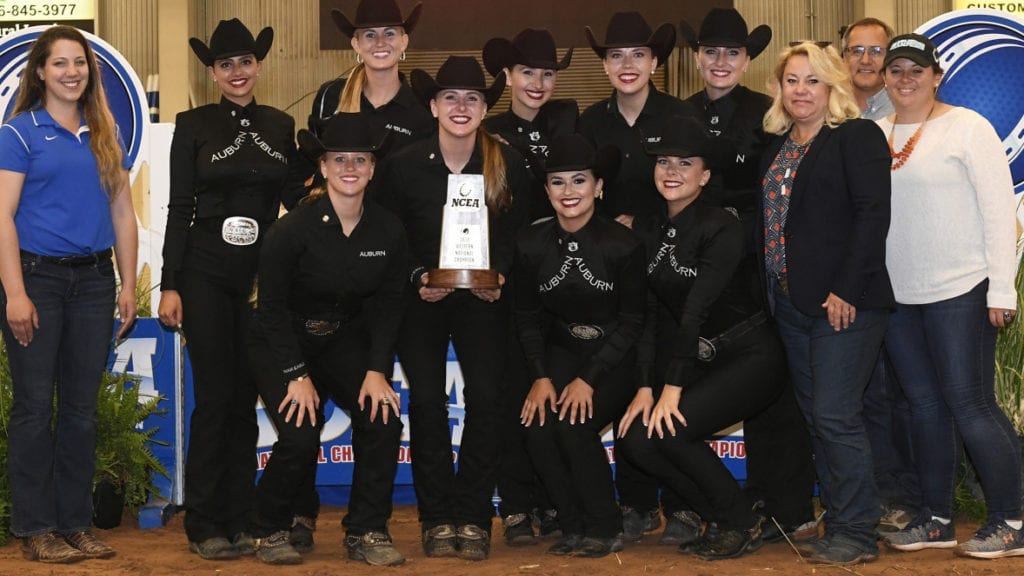 Many NCEA coaches travel to the bigger shows to watch up-and-coming riders in the industry. Mary Meneely, assistant coach for the 2018 National Champion Auburn equestrian team, learns a lot about riders from watching them before and after the show.
Many NCEA coaches travel to the bigger shows to watch up-and-coming riders in the industry. Mary Meneely, assistant coach for the 2018 National Champion Auburn equestrian team, learns a lot about riders from watching them before and after the show.
“I prefer to watch in person instead of videos,” Meneely said. “Attitude is everything. Your attitude is huge. When I go to a horse show, I might be the one up at two or three in the morning watching the warm-up pen and practice sessions. That’s when you see the best and worst riders most of the time. I watch for how they handle it when things go wrong in the pen. Blaming the trainer, getting mad at the horse and other things are red flags. I watch for those little red flags. You almost learn more about the riders watching them outside rather than inside the pen.”
Tami Thurston is the Director of Equine Training and Equine Business Technology at Martin Community College in North Carolina. She uses technology to persuade students to attend her college.
“We utilize social media,” Thurston said. “It’s been a big help. We do some television appearances and do some advertisements. We are starting to try to reach a more national audience. We do have a lot of out of state students. It’s changing some, but we recruit from all over the state and all over the country.”
Making Visits
 Taking the time to go and see multiple college campuses, meet different coaches and explore all of your options is very important. There are so many great programs across the country, and every one has something unique to offer. Jones, Meneely and Thurston recommend visiting all colleges you are considering attending.
Taking the time to go and see multiple college campuses, meet different coaches and explore all of your options is very important. There are so many great programs across the country, and every one has something unique to offer. Jones, Meneely and Thurston recommend visiting all colleges you are considering attending.
“Tour everywhere that you are interested in,” Jones said. “After that, sit down and weigh all the pros and cons. Then, you can decide which place you think is the best for you and feel good about your decision. I even tell the kids I’m recruiting if they are on the fence between another school and me, they need to visit both of us.”
“You need to visit several colleges and get a feel for that university and coaching staff,” Meneely said. “Every single college is going to have a different feel. Also, make sure the college has the degree you are looking into.”
“Make sure you pick the right school for you, and it is the right fit,” Thurston said. “Do your research and know exactly what you are going to get out of the program. Talk to students who have been there. That’s an excellent gauge. Try to talk to more than one student because they all have different experiences.”
The Benefits
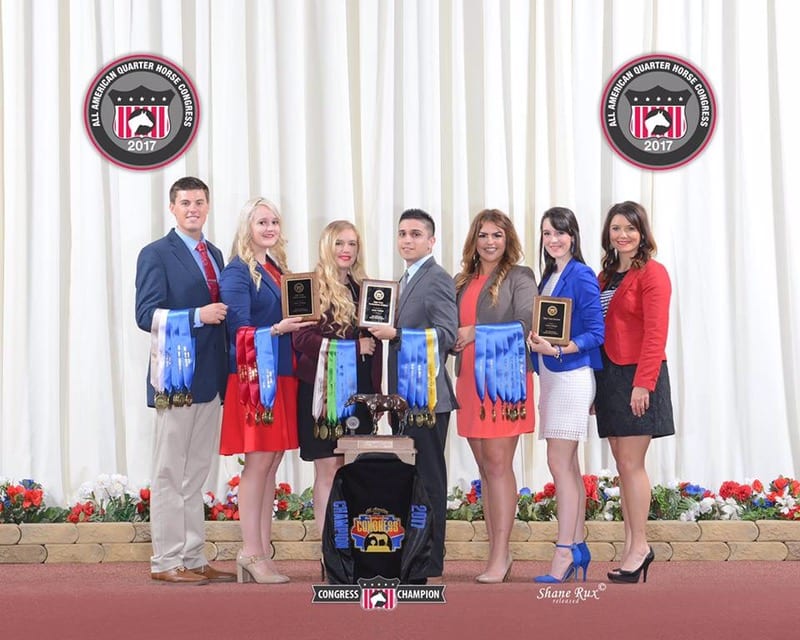 Pursuing a degree in equine or being a member of a competitive collegiate team gives you the opportunity to develop skills you will use for the rest of your life. You will also make lifelong friends and network with many industry professionals along the way.
Pursuing a degree in equine or being a member of a competitive collegiate team gives you the opportunity to develop skills you will use for the rest of your life. You will also make lifelong friends and network with many industry professionals along the way.
“You learn to work with people who come from different backgrounds,” Jones said. “You learn how to be a good teammate and a team player. Work ethic and patience are other great attributes they learn. There is so much more you learn being on a collegiate equestrian team than better riding skills. Developing those skills is the most important. Especially with judging, critical thinking and public speaking skills will take you to the next level professionally and make you more marketable when applying for jobs within our industry.”
“They learn how to ride multiple types of horses, to perform rail and pattern work, to be a good sportsman and to be a team player,” Bradley said. “They especially learn that it takes hard work and dedication to their studies and team practices.”
“It teaches you invaluable lessons such as time management, getting along with others and solving problems,” Meneely said. “You make lifelong friends and family that you can fall back on. The networking opportunities are unbelievable. Businesses and corporations love athletes too because athletes have learned how to manage time and get things done under pressure.”
Career Options
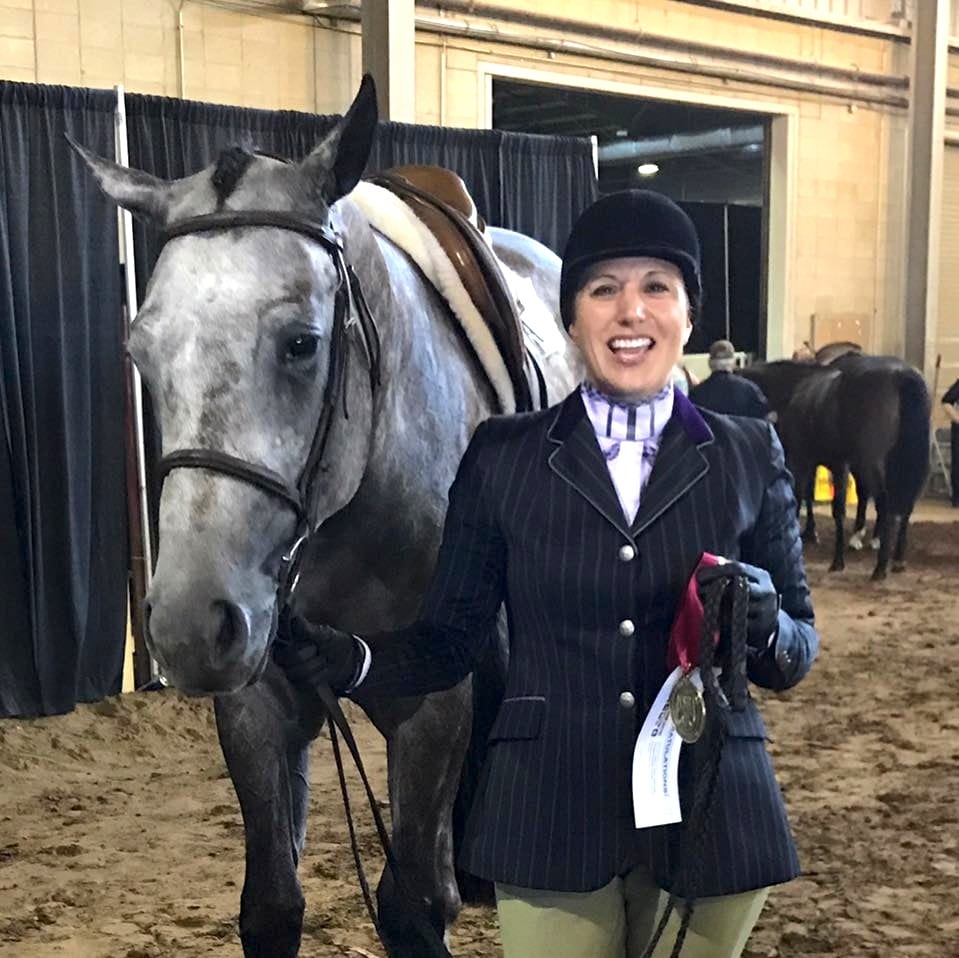 Not everyone who goes to school to study equine or ride on an equestrian team is going to be a horse trainer. There are many other routes students have the opportunity to take. You can manage a boarding facility, continue to be a veterinary technician, become an equine professor and multiple other careers.
Not everyone who goes to school to study equine or ride on an equestrian team is going to be a horse trainer. There are many other routes students have the opportunity to take. You can manage a boarding facility, continue to be a veterinary technician, become an equine professor and multiple other careers.
Thurston sees many of her students get equine business-related jobs or prepare to become a veterinary technician with horses.
“Honestly, a lot of them generally start their own little business whether it’s a lesson barn, training barn or anything like that,” Thurston said. “We have students all over the country who have established their businesses. A lot of our students also go on to be vet tech’s once they graduate from our college.”
Even though most judges have another 9 to 5 job outside of judging horse shows, Jones believes being on a collegiate judging team helps the future process of obtaining judging cards.
“It sets you up for getting your judging cards if that is something you would like to do after you graduate,” Jones said. “It’s competitive to get your judging cards, and you have to know the right people.”
The Future
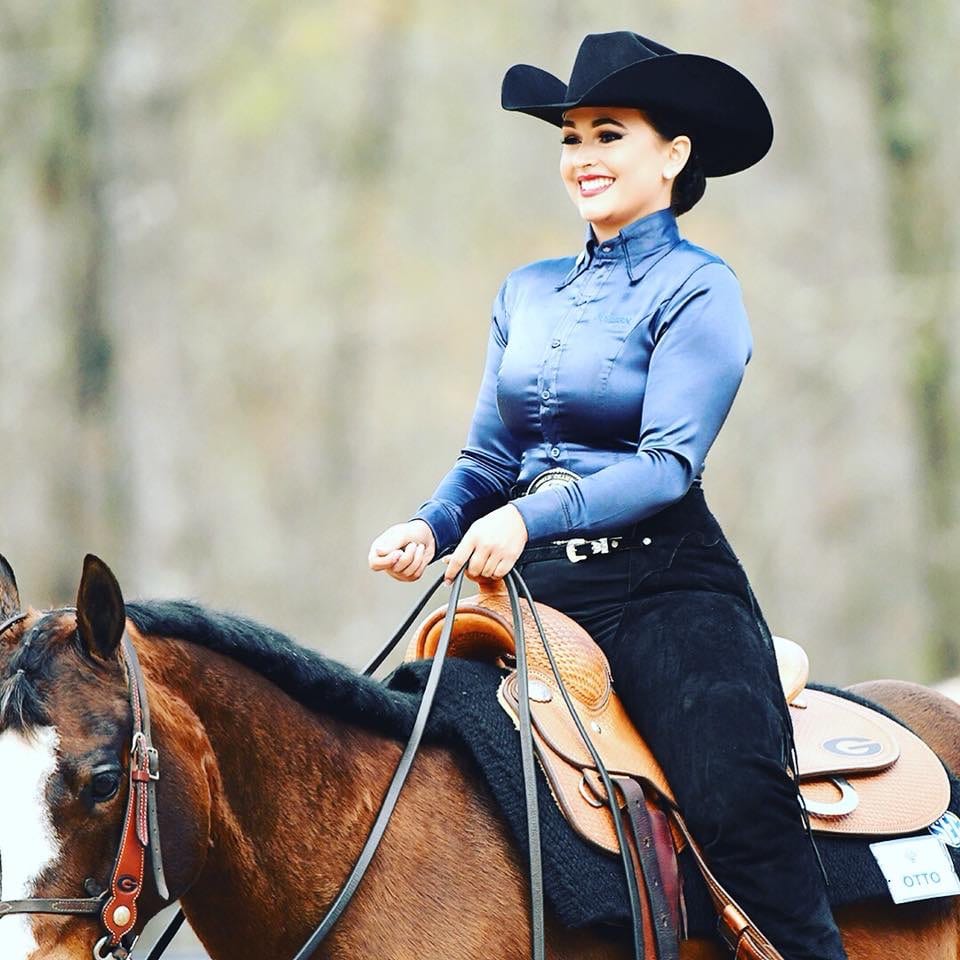 The equine industry goes through its ups and downs just like everything else. The future of NCEA, judging and equine academics is bright. For those looking into an equine degree or position on a team, those are great words to hear.
The equine industry goes through its ups and downs just like everything else. The future of NCEA, judging and equine academics is bright. For those looking into an equine degree or position on a team, those are great words to hear.
“The NCEA is going nowhere but up,” Meneely said. “I think some great systems got put into place. The inclusion of the national advisory board helped. We restructured the organization a bit, and that has helped. We have added a few schools. It’s been a good thing. I think sometimes, change is good. It puts people in motion and has set the organization up for success down the road.”
“I think it’s pretty evident that the horse industry is changing and may be getting a little smaller or maybe not,” Thurston said. “My goal is to figure out where the future of the industry is going and how we can best prepare our students. We are always trying to fill the need of the student.”
Advice
Whether you decide to be part of a collegiate team or study equine in college, there are a few tips to keep in mind. Meneely, Bradley, Thurston and Jones are all strong believers in touring many colleges and universities to find the perfect one for you. Talk to current students and athletes to get a feel for their school. Take your time when debating over schools. Above all, be confident in your decision and prepare yourself for the fantastic journey you are about to take. Good luck to all the incoming freshman starting this fall.
About the Author: GoHorseShow writer, Courtney Hall is a graduate student at Missouri State University. She is obtaining a Master of Science in Agriculture degree with research in agricultural communications. She started showing the APHA & AQHA all-around circuit as a youth and continues today as an amateur.
Photos © KC Montgomery, Shane Rux, Auburn University, Findlay University


